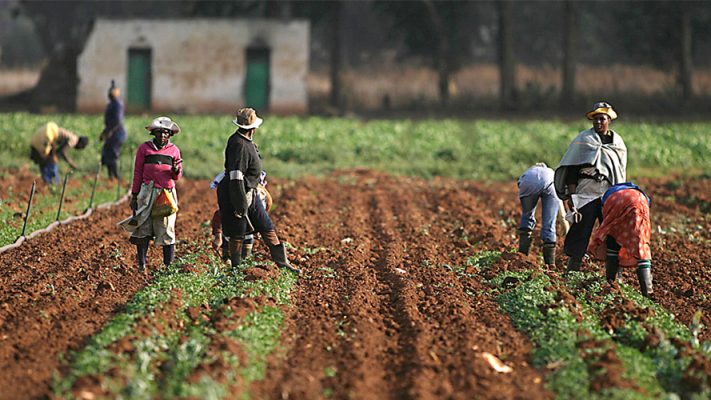Participants at the 2nd National Conference of National Committee of Heads of Colleges of Agriculture and Related Disciplines have asked the Federal Government to withdraw from direct involvement in agriculture and facilitate non governmental organisions and private individuals towards improving agriculture. This is contained in a Communique issued at the end of the 2nd NACHCARD National Conference held at Dr. K. J. Nwufoh Hall of the Federal College of Animal Health and Production Technology, Ibadan. The communique said participants reiterated the need to intensify practical teachings in our colleges.
“Government should sponsor and empower producing agencies to fulfil their mandates. Agricultural re-engineering to make the practice of agriculture attractive to the Nigerian youth. Emphasis was also placed on efficient value chain conversion in agricultural produce. Agro and agribusiness were also reiterated as the new focus in the fields of agriculture. The CBN was proposed to sponsor agriculture, while the Federal Government was expected to withdraw from direct involvement in Agriculture, but is to facilitate NGOs and private individuals towards improved service delivery”, it stated. In his paper presentation titled ‘Setting the Post 2023 Socio-Economic Agenda: Imperatives of a Vibrant Agricultural Industry for Job Creation and Food Security’, Dr. Akinyemi Fadiyimu, stressed that Nigeria was the largest exporter of crude oil in Africa and relies heavily on crude oil sales that account for more than half of Government revenue and 80% of its foreign exchange earnings.
Dr Fadiyimu, who is also Provost/Chief Executive Officer, Federal College of Agriculture, Akure said, however, failure to effectively diversify the economy has stunted its growth potentials. He also noted the effect of COVID-19 of the Country, Nigeria. He stated that the post 2023 socio-economic agenda must be centered on economic recovery and national prosperity through increased economic diversification with agriculture as a key vehicle for this policy direction. Dr. Fadiyimu said the post 2023 socio-economic agenda must be to revive the ailing economy through economic diversification with agriculture as the focal point. “Agricultural industrialisation, linkage of smallholder farmers to the industrial process, import substitution policy, strategic partnerships with local, national and international agricultural development partners are key to creating vibrant agricultural industry for food security and job creation”, he stated.
The Minister of Agriculture and Rural Development, represented by Mrs. Omolara Oguntuyi, stated that the ministry was already implementing the framework of National Agricultural Technology and Innovation Policy (NATIP), 2022-2027, to enhance the sector’s knowledge generation and research capacity for commodity value chain development and agribusiness undertaking in the country. The minister also reiterated the commitment of his ministry to enhancing research system, natural infrastructure, private driven mechanisation and agro-allied value chain clustering. He stressed the need for continuous local and foreign collaborations among state and non-state actors as a pivotal force towards creating conducive business conditions, improving economic growth and expanding commodity value-chain activities.
In his paper presentation titled, ‘Repositioning Agricultural Sector in Nigeria as a Means of Economic Diversification, Transformation, National Food Security and Combating General Insecurity Problems in Post COVID-19 Pandemic’, the NACHCARD chairman, Dr. Oluyemi Akande stressed that the true wealth of any nation lies in its ability to produce food and earn foreign exchange. The presentation detailed the elements influencing the dynamics of agricultural practices, in a bid to exploit them towards a stable and improved agro-economic benefit of Nigeria. He, therefore, encouraged the government to focus on maintaining the agricultural transformation policies towards sustainability economic growth.
Source: Nigerian Tribune



